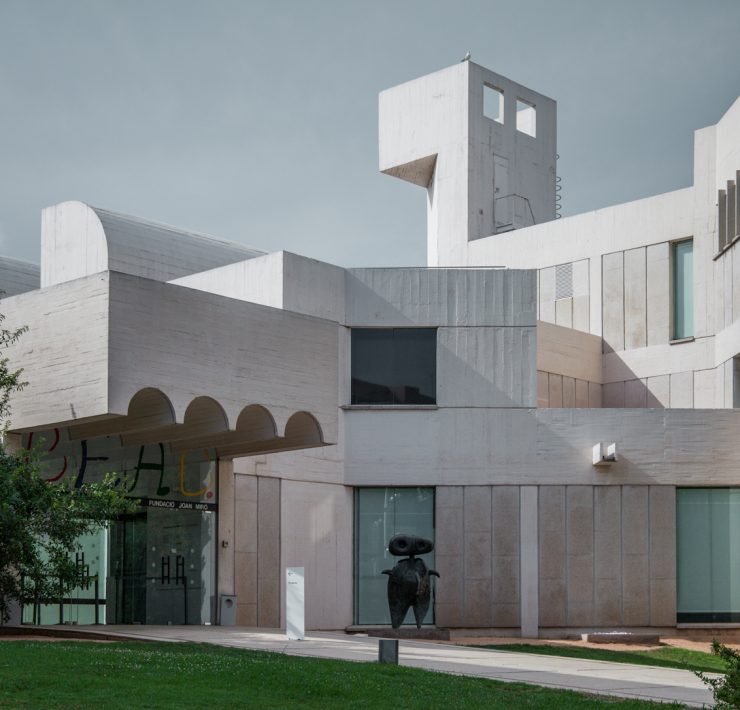Technological Barcelona: beyond the hype


Raquel Miñambres
Manager I, BI Analyst at Concentrix

Iosif Xiradakis
Digital Transformation Executive at SAP
Barcelona is world-renowned for its rich culture, diverse cuisine, and Mediterranean lifestyle. However, in recent years, it has also emerged as one of the world’s leading technology hubs.
And no, tech-driven Barcelona isn’t just synonymous with the Mobile World Congress; the city is known for its vibrant community of tech startups. Today, it is ranked as the 3rd most attractive city to launch a startup, standing out for its strong appeal to entrepreneurs in the sector.
A flagship example is Glovo, founded in 2015 by Oscar Pierre and Sacha Michaud. This delivery app has not only transformed access to products and services in the city, but has also generated employment, fostered partnerships with local businesses to support the local economy, and promoted sustainable initiatives such as bicycle delivery. Today, Glovo operates in more than 20 countries.
Barcelona, global hub
Catalonia has 160 international tech hubs, of which approximately 121 are located in the city of Barcelona. These centres generate over 34,800 jobs and an annual economic impact that exceeds 2,879 billion euros.
Why does Barcelona keep attracting technology?
1. Strategic location and quality of life
Barcelona combines a good climate, good international connections (airport, AVE, port) and a high quality of life. This formula is very attractive to global talent and companies that commit to innovation in dynamic environments.
2. Consolidated ecosystem and expansion
The city hosts HQs and development centres of big companies like Amazon, Microsoft, Nestlé, PespCo, NTT Data or Siemens, which generates synergies, networking and new business opportunities constantly.
3. Institutional commitment for innovation
The Ajuntament and the Generalitat are promoting smart city programs, startup grants, business digitalization, and the attraction of foreign investment. The 22@ district in Poblenou is a flagship example of urban transformation focused on knowledge and technology. At its core, there is close public-private collaboration.
4. Education and tech talent
Barcelona has a robust educational ecosystem with: universities like UPC, UB, ESADE, IESE, UOC, investigation centres, programming bootcamps and a growing international tech community. Adding to this is an increasingly strong entrepreneur culture and a multilingual environment that is key for globalization.
5. AI Innovation, sustainability and digital transformation
Barcelona is leading projects in artificial intelligence applied to the public administration, sustainable mobility, urban data management and digitalization in sectors like health, industry or tourism.
The catalan capital has all the ingredients to become one of the cities with major technological presence and innovative entrepreneurship. However, to achieve success the city will have to face the challenges that will come in the next years:
a. Access to housing and cost of living
The city's international appeal has driven up the cost of living, especially rental prices, making it harder to retain young and specialized talent. Tech companies need their employees to enjoy a good quality of life, and today, that is not guaranteed without high compensation.
b. Talent retention
Although a great deal of tech talent is trained in Barcelona, much of it also leaves. Higher salaries in other European capitals, or remote work opportunities with foreign companies, mean that many tech professionals either move abroad or work from Barcelona without directly contributing to the local business ecosystem. Moreover, with the rapid advancement of technologies like artificial intelligence, continuous and cross-disciplinary training that is accessible to all has become essential.
c. Limited infrastructures
The city has limited space for territorial expansion, and areas like 22@ are beginning to show signs of saturation. In addition, investment in mobility is needed to better connect key locations and improve urban living.
d. Global competition between cities
Cities like Lisbon, Berlin, Amsterdam, Prague or Istanbul offer very competitive conditions in terms of taxation, space and incentives. Barcelona must identify its sustainable competitive advantage to not be left behind by the competition.
e. Sustainability in growth
The attraction of major companies and international talent leads to increased energy consumption, transportation demands, pollution, and more. Barcelona must ensure that its technological growth is aligned with its sustainability agenda.
f. Ethical impact of artificial intelligence
The development and widespread use of artificial intelligence opens up new possibilities, but also calls for ethical reflection and local regulation. How can we ensure that jobs aren’t being replaced irresponsibly? How do we educate new generations to use these tools responsibly? In this context, collaboration between businesses, the administration, and the education system will be essential.
Barcelona lives a unique moment. Beyond its postcard image of the Sagrada Familia, its positioning as an international tech benchmark. But what will mark the difference won't be how many startups or hubs we have, rather how we integrate technology in the daily life of the city. The future is not something that will simply come: it is something that, as a city, we must build from today.
If you want to know the latest English news about Barcelona and the people who bring it to life, sign up to our Blog.







